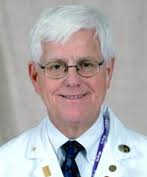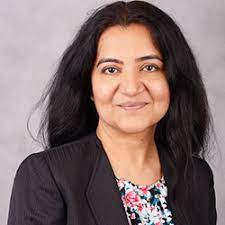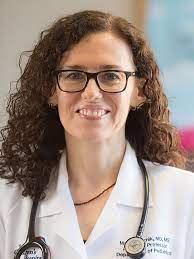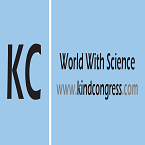Theme: World Pediatrics - Vision for Child Health
WORLD PEDIATRICS 2022
Conference Series welcomes you to the “6th World Pediatrics Conference” during October 06-07, 2022 at Tokyo, Japan.
The field of Pediatrics is growing rapidly, and its development is making tremendous impacts in medicine and Medical Sciences. The importance and significance are often gauged by the very fact that it's made huge advancements over the course of your time and is constant to influence various sectors. World Pediatrics 2022 conference in Tokyo is one of the largest international meetings on Pediatrics. With more than 100 pediatrics practitioners such as general pediatrician, clinical pediatrician, pediatrics dentists, pediatrics surgeon, nurse practitioners, neonatologists, and Pediatric Cardiologists, along with researchers, educators, administrators, policy makers and students expected to attend the conference. This Pediatrics Conference promises to be an exciting and rewarding opportunity to learn together.
Our conference theme “World Pediatrics – A step towards child healthcare”. We are honored to host high-level keynote speakers from all around the world as well as numerous simultaneous oral and poster presentations on health issues and advancements in pediatrics from conference attendees. The Pediatrics Conference will help professionals to learn the latest advancement in the field of Pediatrics and Neonatology, Advances in Pediatrics, Pediatrics Oncology, Pediatrics Healthcare and Pediatrics Nursing.
We also welcome the participation of Presidents, CEO’s, Delegates and industry executives from Pharmacy and Healthcare sectors making the congress a perfect platform to network, share views and knowledge through interactive keynote, plenary, poster and B2B discussions. We have dealt with various compelling Pediatrics events and Neonatology gatherings and develop incredible relations bringing the researchers and associations together
Track 01 : Pediatrics
Pediatrics focuses on the physical, behavioural , and mental health issues that affect infants ,children, and adolescents. Medical knowledge and an understanding of how medications affect various biological processes at different growth stages are essential because, as children develop cognitively and physically, it's crucial to build a unified strategy to medication safety and quality. Biological process issues, genetic variance, and inborn abnormalities are often the focus of medicine.
- Pediatric Nutrition
- Pediatrics Vaccines
- Pediatric Psychology
- Pediatric Ophthalmology
- Pediatric Dermatology
Track 02 : Pediatrics Cardiology
Pediatric medicine includes biology and anatomy, physiology and pharmacological medicine, organic chemistry, pathology, genetics, radiology, clinical aspects, fact-finding medicine, electrophysiology and diagnostic procedure, and internal organ surgery. It also covers all aspects of the heart condition in infants, children, and adolescents.
Track 03 : Pediatrics Oncology
A clinical and scientific specialist of medicine, pediatric is rightfully regarded as such. It doesn't follow that the final medical professional or specialists in various fields of medicine won't find it interesting. Contrarily, the early signs of a malignant illness typically involve nonspecific symptoms. Different diseases cannot be ruled out, even though a tumour or leukaemia may be the primary suspect. The enigmatic general symptoms that a tumour can induce, on the other hand, can mislead people to misdiagnose themselves.
Track 04 : Clinical Pediatrics
Clinical pediatric is the initial exercise (v) in the study of pediatrics medicine sciences. It entails the analysis of pharmaceuticals used in the treatment of newborns, children, and teenagers, as well as the identification of particular illnesses and problems that affect children. The clinical Pediatric Medicine Congress focuses in particular on common practice-oriented issues including General medical specialty diseases, medical specialty infections, harm sickness of the newborn, intrauterine growth restriction (IUGR), and medical specialty diagnostic methods.
Track 05 : Pediatric Care & Nursing
Pediatric nursing is the provision of medical care for newborns, children, and adolescents, occasionally in an inpatient hospital or day clinic. The majority of a medical specialty nurse's duties include personally administering procedures and medications to children in accordance with established medical aid plans. Additionally, nurses routinely evaluate patients by recognising crucial symptoms and honing their interpersonal and medical communication skills with patients, family members, and other healthcare professionals. One aspect of direct medical assistance is offering support to children and their families.
Track 06 : Pediatric Nutrition
Pediatric nutrition is the term used to describe the dietary requirements of neonates and young children. Infants need food to get the nutrition and energy they need to stay healthy. The average baby eats 1400 food calories per day. Sweet nutrition is a sufficient consumption of foods high in nutrients. A child's diet that is deficient in vital calories, minerals, fluids, and vitamins may be regarded as having "poor" nutrition. Breast milk is "best" for a newborn. All the necessary vitamins and minerals are present. For infants whose moms are unable or unwilling to nurse, baby formula is available. Usually between four and six months of age, infants start eating solid foods. For each newborn, a clinician is contacted to determine what is best.
Track 07 : Pediatrics Infectious Diseases
A illness caused by an organism, such as a bacterium, virus, fungus, or parasite, is called an infectious infectious disease. Although most organisms are beneficial or innocuous, some have the potential to be harmful in certain circumstances. Some contagious diseases are frequently spread from one person to another. Some diseases are spread via the bites of insects or other animals. Et al. are not transmissible through swallowing tainted food or water or through environmental exposure to microorganisms. Depending on the organism causing the infection, there are different signs and symptoms, but generally speaking, they include fever and exhaustion. Illnesses that are mild may respond to rest and home remedies, however certain serious infections may require hospitalisation.
Track 08 : Neonatology
Neonatology is a branch of pediatric medicine that deals with the care of newborn infants, especially those who are unwell or premature. It is primarily carried out in baby medical aid units and is a hospital-based specialty (NICUs). The majority of neonatologists' patients are newborn babies who are ill or require special medical care due to their prematurity, low birth weight, intrauterine growth restriction, lack of inheritable birth abnormalities, sepsis, respiratory organ dysplasia, or physiological status at delivery.
Track 09 : Pediatric Dermatology
Children with skin diseases, from newborns to adolescents, are treated by a medical specialist. Pediatric dermatologists may care for patients in hospitals in addition to treating children in patient clinic settings. Many carry out surgical operations, including connective tissue surgery and optical device medical help. Dermatologists diagnose a wide range of skin conditions, including genodermatoses (inherited skin disorders), inflammatory disease eruptions, rare varieties of carcinoma, drug eruptions, microbial exanthems, and scleroprotein tube-shaped structure disorders. These conditions are in addition to birthmarks (vascular and pigmented), skin infections, eczema (atopic eczema, contact dermatitis), melanocytic nevi (moles)
Track 10 : Autism
Autism Spectrum Disorder (ASD) may be a biological process disorder that affects verbal, social, and physical skills as well as communication. The first important thing to comprehend about syndrome is that it is a spectrum disorder, meaning that each person will experience its consequences differently. Two people who have the syndrome share a common symptom. Before the age of three, early childhood symptoms usually manifest. There will be mild to severe symptoms.
Track 11 : Pediatric Surgery
Pediatric surgeons also oversee the surgical needs of children as they are diagnosed, treated, and Children and adolescents who have groyne anomalies such as testicular hernias, hydroceles, and varicoceles may have surgery. birth defect surgical correction. Pediatric surgeons have a keen eye for children and know how to approach their care in a way that makes them comfortable and cooperative. The equipment and facilities that paediatric surgeons use were created with children in mind. The majority of paediatric surgery facilities are decorated and planned with children in mind. For kids, there may be toys, films, and reading materials in the waiting areas and exam rooms. As a result, your child will experience a comfortable and safe environment.
Track 12 : Pediatric Gastroenterology
A physician with training in pediatrics gastroenterology is an expert in identifying and treating conditions that affect newborns, kids, and teenagers' digestive systems. The pediatric gastroenterologist addresses diseases such gastrointestinal pain, ulcers, diarrhoea, cancer, and jaundice and carries out difficult diagnostic and therapeutic operations while employing lighted scopes to view interior organs.
- Childhood cirrhosis
- Feeding disorders
- Obesity and autism
- Allergic GI disorders
- Pediatric endoscopy and imaging
- Diagnosis & Treatment
Track 13 : Pediatric Immunology
A branch of medicine that deals with treating children's medical conditions or allergy problems is known as pediatric medicine. Children with the upset unit of measurement are much more at risk for cancer because system plays a big role in spy identification and defence. Our body contains a variety of organ types that are essential to the functioning of medicine. The organs include tonsils, spleen, thymus, and bone marrow. Every subspecialty in medicine is affected by drugs. Medication use has direct connections to infectious disorders, haematology, and drugs, with hypersensitivity and pharmaceuticals being its closest allies.
Track 14 : Pediatric Neurology
Pediatric neurology, often known as child neurology, treats conditions affecting the central nervous system, peripheral nerves, and muscles in infants, children, and adolescents. Seizures, slurred speech, weakness, or headaches are the problems. Pediatrics neurologists have specialized training in the diagnosis and management of systema nervosum (CNS, PNS) diseases as well as a working knowledge of pediatric medical disorders and the unique needs of children.
- Disordered hyperactivity (ADHD)
- neurological disorders in newborns
- medically uncontrollable epilepsy
- cranial abnormalities
- Neurology in newborns
Track 15 : Pediatrics Medical Emergency
The emergency room (ED) may offer a significant opportunity to provide specialized medical medical psychological state screening to patients who are associated with a dangerous environment. Neighborhood eudemonia centers may be an essential new development in healthy thinking for the poor in a very urban neighbourhood. Examining the frequency of crisis workplace visits by medical institution space allowed researchers to consider if one of those efforts to reduce the number of medical specialty trips to emergency rooms was effective. Many hospitals and emergency rooms desire resources to best accept sick and hurt children, promoting risks of accepting divided and "uneven" care. a number of creative initiatives, including programmes for medical specialty standing recognition, telemedicine, unaltered re-enactment endeavour, and network, as well as doctor and propelled hone provider
Track 16 : Pediatric Radiology
Pediatric radiologists work with a specialist or pediatric specialist as part of a team to provide the best possible care for a newborn. Pediatric radiologists are experts in deciding which imaging techniques are most straightforward to use while researching medical and surgical issues. A new generation of pediatric radiologists, imaging equipment, and methods are facultative additional child-focused imaging, increasing the ability to detect and monitor diseases in children.
- Techniques used in pediatric radiology
- Improvements in pediatric imaging
- Child radiation protection concerns
Track 17 : Pediatric Rheumatology
Rheumatic disease affects the muscles, connective tissues, and joints. Some conditions, like arthritis, are a result of wear and tear. Others are system problems, such autoimmune disease. A good diet, frequent exercise, stress reduction techniques, and rest are all possible components of the therapy plan. Zoonosis, generalized lupus, Bechet's illness, polymyalgia rheumatica, and viral disease are typical rheumatic conditions. Lupus is a term used to describe a group of response illnesses in which the body's defense mechanisms become overactive and target conventional, healthy tissues. The intestines, joints, skin, and brain are all affected by infectious disease, which is a kind of disease. Numerous rheumatic illnesses are chronic disorders. They are unlikely to depart. Although a cure for our ailment may not exist,effective management is possible.
Track 18 : Pediatrics Vaccines
Immunization is the means of becoming immune to a disease, whereas antibodies play a crucial role in maintaining the child's health. To protect children from illnesses before they are exposed to them, vaccinations should be possible at the earliest stages of life. Pediatric services are built upon immunizations. An important factor influencing changes in infant and adolescent mortality is the vaccination process, which is carried out in anticipation of dangerous contaminants.
- Possible obstacles
- Vaccination's effectiveness and safety
- immunisation against polio
- vaccinations for newborns
Track 19 : Pediatric Psychology
Pediatric psychology science is a multidisciplinary discipline that combines research and clinical practise in an effort to address the psychological effects of disease, injury, and the encouragement of healthy behaviours in children, adolescents, and families in a pediatrics health context. The biological process framework is used to treat psychological issues and stress the dynamic links that exist between children, their families, and the entire health delivery system. The outcomes of children with medical conditions, the comorbid behavioural and emotional aspects of illness and injury, the promotion of healthy behaviours, biological process disabilities, and training psychologists and other health professionals in the psychological aspects of treatment are all common research topics.
Track 20 : Pediatrics Endocrinology
Infants, kids, and teenagers with disorders brought on by abnormalities in the endocrine glands receive skilled care from pediatricians who have specialised in pediatric endocrinology (glands which secrete hormones).
These diseases include
- diabetes mellitus
- growth failure
- unusual size for age
- early or late pubertal development
- birth defects
- the genital region
- disorders of the thyroid, the adrenal, and pituitary glands
Track 21 : Pediatrics Obesity
Pediatrics Obesity is a condition when there is an abundance of muscle to fat ratios that negatively affects a child's happiness or prosperity. The determination of weight is typically made using BMI because it is difficult to determine how much muscle to fat a person should have. It is considered to be a serious general eudaemonia concern because kid obesity is becoming more prevalent and has a variety of adverse eudaemonia effects. As an area of children, the term avoirdupois is widely used because it is less derogatory than fat.
Obesity may actually be a serious, persistent illness. Weight gain and being overweight are indicators of unhealthy ratios of muscle to fat. However, it is difficult to measure precisely the ratios of muscle to fat mass, hence the body mass index, or BMI, is used to measure them. When calculating results, the BMI takes a teenager's weight and height into account. The outcome is contrasted with models for children between the ages of two and twenty who have an analogous sexual preference.
Track 22 : Pediatric Breast Feeding
Breastfeeding contains vital components that don't appear to be present in any newborn child equation, which help to build the infant's resilient structure. Bosom food is the ideal food to promote sound development and improvement because it transforms from support to encouragement to meet each child's unique needs. Mother's memory organs are capable of creating a bosom drain. The term "alveoli" refers to the region of the organ where the drain is produced. It is the source of all beneficial and essential vitamins that aid a young child in developing physically and mentally in the right ways. Breastfeeding helps newborns assimilate easily, protects them from infections and hypersensitivity, keeps them healthy, and reduces the need for preventative care and play time for them.
Track 23 : Pediatric Hematology
The study of cancer cell biology examines applications concerned with flag transduction tools in developing cells, as well as the direction of cancer cell constitution and behaviour, and cancer migration. In a medical speciality with a medical problem, it is crucial to admit causes, probability components, and consequently, the theory. A pediatric medical specialist is a healthcare professional with significant authority in this area of pediatric medicine. In order to avoid children from being affected by blood issues, it is crucial that one is familiar with educational and preventive methods.
The majority of the global pediatric market is made up of healthcare services provided across many industries in the healthcare industry. Children are typically more prone to disease, illnesses, and infections. Therefore, the success of the paediatric healthcare industry cannot be disputed. Changes in lifestyle and unwholesome family customs are partly to blame for the growth of this industry. The primary factors driving the growth of the paediatric healthcare industry are the rise in death rates from various diseases, viral infections, and malnutrition.
In 2020, the market for pediatric home healthcare was estimated to be worth USD 37.0 billion. From 2021 to 2028, it is anticipated that the market will increase at a CAGR of 7.8 percent. The accessibility of cutting-edge technology for offering ongoing care and medical assistance to children with medical complexity (CMC) at home is anticipated to drive market expansion.
Worldwide, there are increasing chances for key companies to engage in the market due to the incidence of chronic disorders in children, including cancer, congenital heart disease, cystic fibrosis, muscular dystrophy, and epilepsy. In the United States, 5.6 million kids needed at least 5 hours of in-home medical care in 2009–2010, according to NS–CSHCN. An estimated 1.5 billion hours are spent annually by parents caring for their kids, which results in a financial burden of $3,200 for each family.
Conference Series welcomes you to the “5th World Pediatrics Conference” during October 22-23, 2021 at Tokyo, Japan.The field of Pediatrics is growing rapidly, and its development is making tremendous impacts in medicine and Medical Sciences. The importance and significance are often gauged by the very fact that it's made huge advancements over the course of your time and is constant to influence various sectors. World Pediatrics 2021 conference in Tokyo is one of the largest international meetings on Pediatrics. With more than 100 pediatrics practitioners such as general pediatrician, clinical pediatrician, pediatrics dentists, pediatrics surgeon, nurse practitioners, neonatologists, and Pediatric Cardiologists, along with researchers, educators, administrators, policy makers and students expected to attend the conference. This Pediatrics Conference promises to be an exciting and rewarding opportunity to learn together.
Our conference theme “Latest Advances in the Rapidly Evolving Field of Pediatrics and Neonatology”. We are honored to host high-level keynote speakers from all around the world as well as numerous simultaneous oral and poster presentations on health issues and advancements in pediatrics from conference attendees. The Pediatrics Conference will help professionals to learn the latest advancement in the field of Pediatrics and Neonatology, Advances in Pediatrics, Pediatrics Oncology, Pediatrics Healthcare and Pediatrics Nursing.This Pediatrics Meetings is focused on sessions covering topics such as General Pediatrics, Pediatric Oncology, Clinical Pediatrics, Pediatric Care & Nursing, Pediatric Nutrition, Pediatrics Infectious Diseases, Neonatology, Pediatric Dermatology, Pediatric Surgery, Pediatric Radiology, Pediatric Rheumatology, Pediatric Vaccines, Pediatric Psychology, Pediatric Obesity, and Pediatric Hematology. There are also sessions on Pediatric Gastroenterology, Pediatric Cardiology, and Breast Feeding.
Conference Highlights
- Pediatrics
- Pediatrics Cardiology
- Pediatrics Oncology
- Clinical Pediatrics
- Pediatric Care & Nursing
- Pediatric Nutrition
- Pediatrics Infectious Diseases
- Neonatology
- Pediatric Dermatology
- Autism
- Pediatric Surgery
- Pediatric Gastroenterology
- Pediatric Immunology
- Pediatric Neurology
- Pediatrics Medical Emergency
- Pediatric Radiology
- Pediatric Rheumatology
- Pediatrics Vaccines
- Pediatric Psychology
- Pediatric Endocrinology
- Pediatrics Obesity
- Pediatric Breast Feeding
- Pediatric Hematology
To share your views and research, please click here to register for the Conference.
To Collaborate Scientific Professionals around the World
| Conference Date | October 06-07, 2022 | ||
| Sponsors & Exhibitors |
|
||
| Speaker Opportunity Closed | Day 1 | ||
| Poster Opportunity Closed | Click Here to View | ||
Useful Links
Special Issues
All accepted abstracts will be published in respective Our International Journals.
- Neonatal and Pediatric Medicine
- Journal of Pregnancy and Child Health
- International Journal of Emergency Mental Health and Human Resilience
Abstracts will be provided with Digital Object Identifier by












